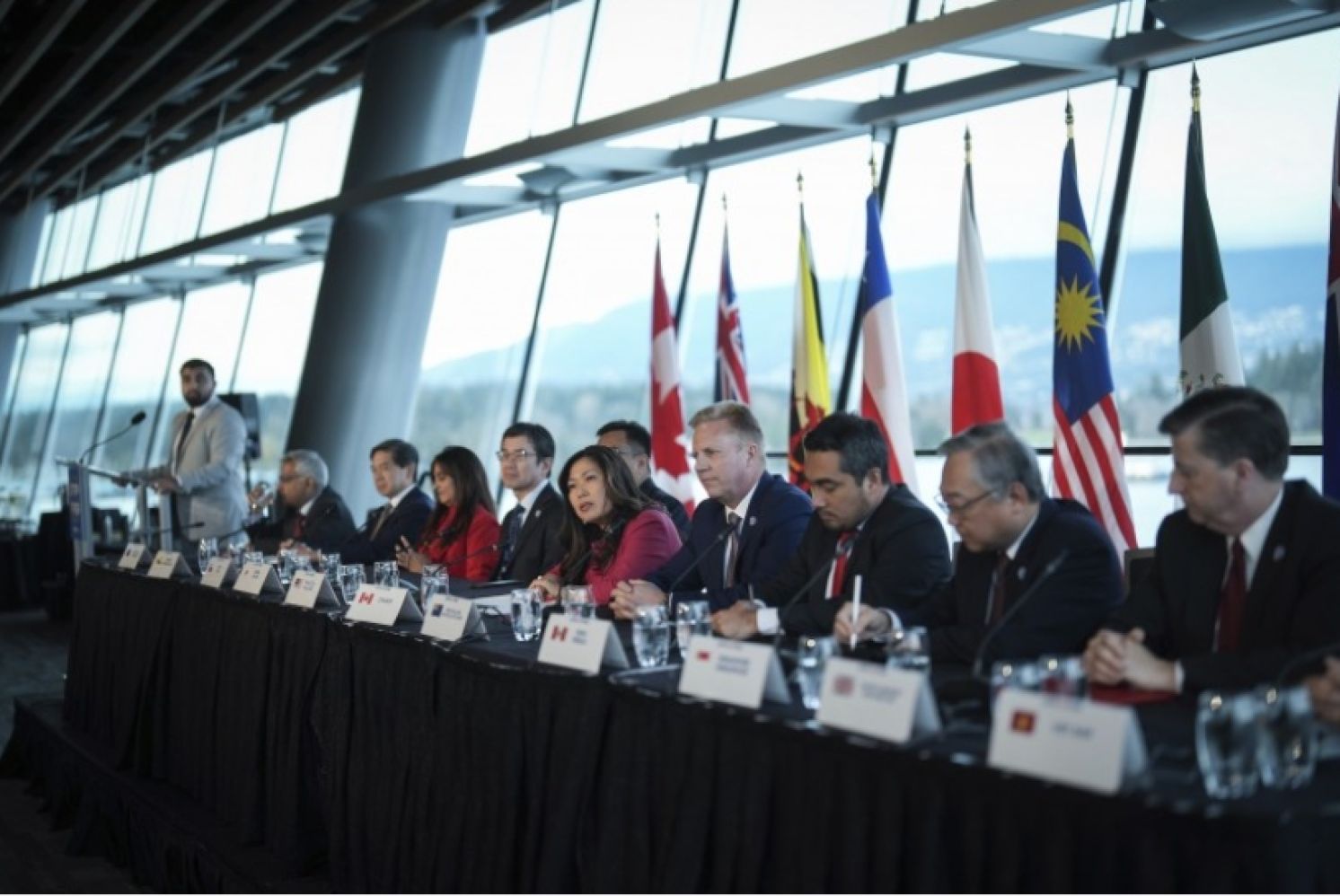
Taiwan's Difficulty Joining the CPTPP Worsens Industry Imbalance
The Storm Media Editorial, December 2, 2024
Taiwan's prospects of joining the Comprehensive and Progressive Agreement for Trans-Pacific Partnership (CPTPP) are slim, and the biggest impact may be the further exacerbation of domestic "imbalanced development." Whether the public is left to "swallow" pork with ractopamine or nuclear food is less of a concern.
At last week's annual meeting of the CPTPP Executive Committee, Canada, the chair nation, announced that Costa Rica will become the next potential member, while the membership applications of mainland China and Taiwan, which were submitted earlier, were put on hold. The official reason given was that Taiwan has not gained the consensus of all member countries, so its membership was not discussed. Taiwan, on the other hand, emphasized its strong trade and economic performance, meeting all high standards, but ultimately was not favored. The reason, of course, is the "China factor."
From this perspective, Taiwan’s CPTPP bid may remain "forever pending," only advancing if there is a major shift in the international landscape. The best-case scenario could be a "WTO model," where both Taiwan and mainland China join at the same time, with the mainland taking the first step.
The CPTPP originated from the Trans-Pacific Partnership (TPP) initiated by the administration of U.S. President Barack Obama to "re-engage Asia" and counter China. In 2015, the 12-member TPP completed negotiations but failed to gain congressional approval. In January 2017, Trump, who opposed free trade and supported protectionism, took office and announced the withdrawal of the United States from the TPP. Japan then took the lead, renaming it the CPTPP, which was later implemented. Despite a change in leadership with Biden's presidency, Japan expressed interest in having the United States rejoin the CPTPP, but the American political situation now makes it impossible for the country to participate in any free trade organization.
The most surprising development was that, besides the United Kingdom, which had applied to join early, when the CPTPP was officially launched and began accepting applications, mainland China was the first to submit its application—faster than Taiwan, which had been talking about joining the CPTPP for years, even urging its citizens to "eat ractopamine pork and nuclear food." Unfortunately, Taiwan's application came just six days after the mainland’s, but the outcome may be dramatically different, with Taiwan now facing greater pressure from the mainland.
The CPTPP is touted as a "high-standard" free trade organization, and the United States initially designed it with the intent to block China’s participation. Compared to the mainland, Taiwan clearly meets the criteria for membership. Moreover, based on its "founding purpose," the CPTPP would likely be more willing to accept Taiwan and exclude the mainland.
However, mainland China made a strategic move: knowing that the CPTPP was designed to counter China, it applied anyway. This put the CPTPP in a difficult position. If China is allowed to join, an organization originally intended to "contain China" would end up with China, the very adversary it sought to oppose, as a member—while the United States, the founding leader, remains absent. Given China’s economic size and trade volume, its membership would certainly benefit the CPTPP. The United States withdrawal has already diminished the scale and influence of the organization, and insisting on excluding China may not be in the CPTPP's best interest.
Taiwan made a fatal mistake at this critical juncture: it hesitated and delayed. Although it had decided to apply long ago, it waited until after mainland China applied before hastily submitting its own request. Now, the mainland has become a major obstacle to Taiwan's accession. The CPTPP operates on a consensus basis, and countries like Japan and Canada, who align with the United States, will certainly oppose China’s membership. But for Taiwan to secure the consensus of the 11 members before the mainland is highly unlikely, if not impossible. The result will either be prolonged delays or a political solution, such as in the World Trade Organization (WTO) where both Taiwan and mainland China joined simultaneously to prevent the mainland from blocking Taiwan. However, the mainland’s earlier application means it can "save face" by joining first.
Taiwan's difficulty in joining the CPTPP, or the possibility of joining many years later, will have significant negative impacts on the country. In the past, many economic and trade officials and scholars have repeatedly warned about Taiwan being marginalized in international trade. However, in recent years, Taiwan's economic and industrial performance has been relatively strong, leading some to believe that participating in FTAs or trade organizations is no longer important.
This view is misguided, and in fact, Taiwan is already suffering the consequences without realizing it. Joining free trade organizations (FTAs) benefits nearly all industries. Without the preferential tariffs of FTAs or trade agreements, it is often the traditional export industries that suffer, as they face higher tariffs that reduce their competitiveness. On the other hand, Taiwan’s information and communication technology (ICT) sector is not affected due to the Information Technology Agreement (ITA), which continues to allow it to benefit from tariff exemptions.
In recent years, Taiwan's industrial focus has become heavily skewed toward the ICT sector. While this can be seen positively as Taiwan’s global competitiveness in ICT grows, it also indicates a growing imbalance in industrial development. This imbalance is reflected in the unequal distribution of income among the population. The Directorate-General of Budget, Accounting and Statistics, Executive Yuan, recently published its economic growth statistics. The good news is the forecasted economic growth rate, but the bad news is that the government has acknowledged that the problem of unbalanced development has become more severe.
The government can continue to make efforts to join the CPTPP, but honestly, much of what they are doing appears to be "empty gestures" aimed more at domestic propaganda. The ultimate success or failure often lies beyond their control. Instead, the government might consider investing more effort and resources into addressing internal imbalances, which could be more practical and effective.